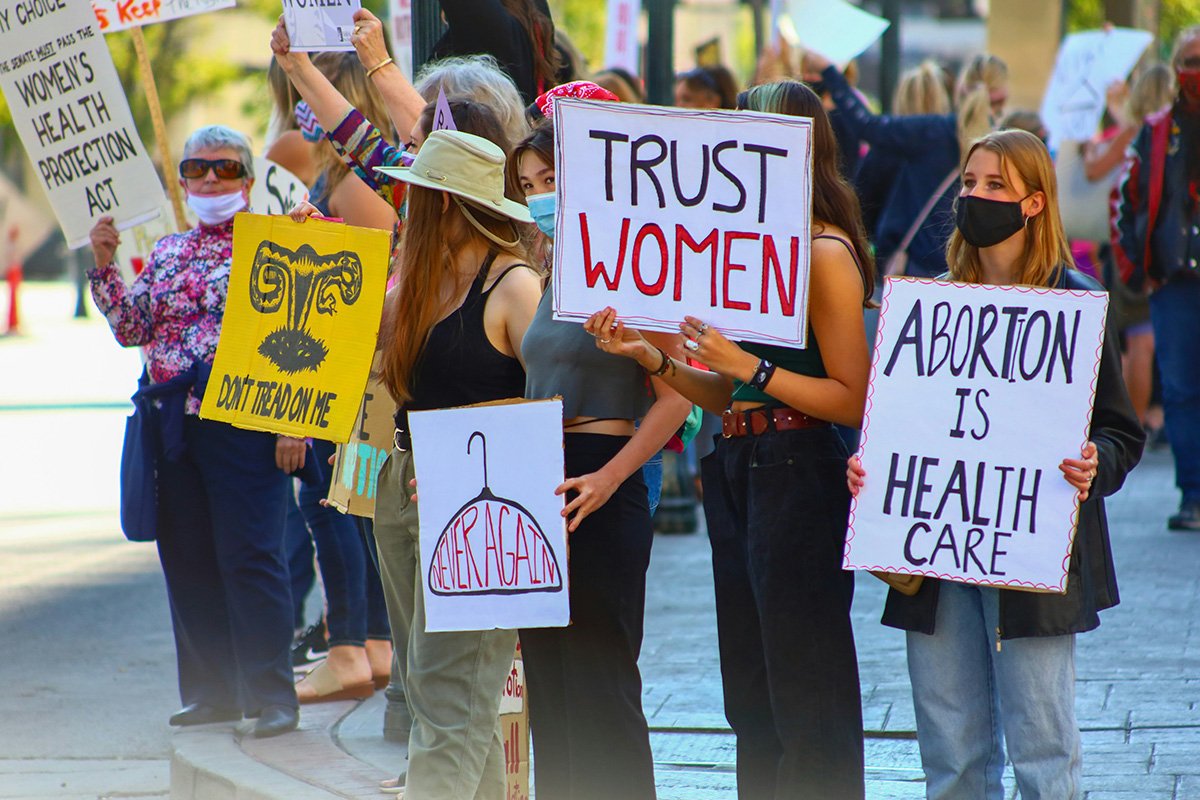
When the former Blue Shield of California public policy director saw the Los Angeles Times on Friday, Michael Johnson learned his ex-employer was taking him to court. The nonprofit Blue Shield of California filed suit against Johnson, accusing him of having publicly disclosed “confidential and/or attorney-client privileged information he acquired by virtue of his employment in a position of trust at Blue Shield.”
The Blue Shield complaint describes Johnson as a “discontented former employee,” but Johnson describes himself as a “whistleblower” who has led a campaign since his resignation from the company in March of 2015, charging that Blue Shield has not functioned in the public interest as a nonprofit should.
On Johnson’s website is a link to a petition with 13,530 signatures as of November 9th, charging that Blue Shield is “run like a for-profit company…depriving the public of the social welfare benefits taxpayers have paid it to provide.” The petition calls on Blue Shield either to relinquish its nonprofit status and funds or deliver “about $500 million a year in community benefits” (approximately five percent of Blue Shield’s $10 billion in tax-exempt assets).
Johnson told Nonprofit Quarterly that “this is a classic SLAPP suit.” (SLAPP stands for “strategic lawsuit against public participation” and refers to a suit intended to silence critics or opponents by hitting them with expensive litigation that would cause them to cease their criticism.) He said, “There’s no doubt at all that this is about threatening to bury me in legal costs and get me to back down.” In a brief comment about the suit on his webpage, Johnson wrote that the Blue Shield suit is “not going to work. I’m going to intensify my work exposing Blue Shield’s misdeeds and abuse of its nonprofit status.”
Company spokesman and Vice President for Corporate Communications Steve Shivinsky confirmed to Nonprofit Quarterly by email that Blue Shield of California were “not suing…for monetary damages at this time,” but the Blue Shield complaint filed in court does call for Johnson to pay for “the reasonable costs of the suit,” which often means that the plaintiff might be seeking the defendant to pay for attorneys’ fees. As of last night, Johnson had not secured legal counsel, but he told Nonprofit Quarterly, “fighting Blue Shield on my own is going to be difficult; I’m going to need help for sure.” On his webpage, Johnson asked readers to make contributions toward his legal expenses, promising that if the court made Blue Shield pay, he would reimburse his donors.
Blue Shield alleges that Johnson is in breach of contract by retaining and disclosing privileged or confidential company information after he left Blue Shield’s employ. While the Blue Shield complaint makes reference of unspecified documents, it aims to prevent Johnson from drawing on confidential information and “trade secrets” that Johnson might have come across in his work that were “not a matter of general knowledge.” The suit contends that Johnson’s alleged “improper exploitation of Blue Shield’s confidential information” caused Blue Shield to lose “money or property.”
Johnson’s campaign on Blue Shield’s purported “shortcomings” as a nonprofit, after having worked for Blue Shield for a dozen years, has cost Blue Shield something tangible: Last spring, as a result of questions raised about Blue Shield’s nonprofit status, the California Franchise Tax Board pulled the mammoth insurer’s tax exemption. That decision has potentially exposed Blue Shield to millions it might have to pay in state and local taxes. Coverage of the Tax Board’s decision at the time by Chad Terhune of the Los Angeles Times suggested that some of the Board’s concerns might have been its allegedly overly large reserve fund of more than $4 billion, the very high salaries paid to Blue Shield executives, and the company’s practice of very limited disclosure of salaries and benefits paid to top executives. Blue Shield has for its part asserted that it more than lives up to its nonprofit mission and commitment to the community.
Since the Tax Board’s decision, however, the state has approved Blue Shield’s long-sought acquisition of Care 1st, a Medicaid health plan, though Terhune reports that a number of conditions sought by healthcare advocates were added to the deal. Among the concessions Terhune cited were Blue Shield’s agreement to permanently relinquish its state exemption (though the company is still appealing a $150 million charge for back taxes and interest for 2009 to 2012) and a pledge of $200 million on healthcare improvement initiatives (to be spent through Blue Shield’s own charitable foundation). However, the state gave in on the point that Blue Shield’s $4.2 billion in reserves were not subject to charitable trust obligations because Blue Shield isn’t a public charity, although Blue Shield indicated that it intended to continue to operate as a nonprofit.
Sign up for our free newsletters
Subscribe to NPQ's newsletters to have our top stories delivered directly to your inbox.
By signing up, you agree to our privacy policy and terms of use, and to receive messages from NPQ and our partners.
Health advocates such as Jamie Court of Consumer Watchdog and Anthony Wright of Health Access expressed disappointment in the decision of state regulators on the Care 1st acquisition, with Court charging that the regulators were “holding a very strong hand, and they folded.” Shelley Rouillard, the director of the Department of Managed Health Care, disagreed, citing the “strong commitments from Blue Shield to do better” and the state’s commitment to “monitoring them and holding them accountable.”
Having relinquished its tax-exempt status and having secured the attractive acquisition of Care 1st and its 500,000 enrollees in the Los Angeles and San Diego areas, Blue Shield would seem to have gotten past some of Johnson’s challenges to its operations, losing on the tax-exempt status but protecting its reserves and corpus from the restrictions of charitable trust oversight. However, there might be additional reviews of the Care 1st acquisition or the Blue Shield reserve fund, perhaps by the California Attorney General or by members of the state legislature, that would make Johnson a player in further discussions.
That might be one reason why Blue Shield filed suit with the intention, as Shivinsky told NPQ, of getting Johnson simply to “return the company’s property, and to stop using it in violation of his legal obligations.” However, the court documents noted that as part of its inquiry into Johnson, Blue Shield had conducted a forensic examination of Johnson’s company-provided laptop and discovered that Johnson had allegedly accessed “highly confidential and attorney-client privileged documents.” NPQ’s questions to Shivinsky about whether such forensic reviews were typical for departing employees, when the forensic analysis was conducted, and at what cost, were not answered.
Whether or not Blue Shield intended this, the suit against Johnson has many of the characteristics of a SLAPP suit. California has one of the most liberal anti-SLAPP statutes in the nation, aimed at the “disturbing increase in lawsuits brought primarily to chill the valid exercise of the constitutional rights of freedom of speech and petition for the redress of grievances.” In his statement to Nonprofit Quarterly, Johnson argues Blue Shield is supposed to be a community asset, but in this instance, it is “using some of those assets to sue someone who has been raising questions about whether they have been serving the public the way they ought to,” essentially to get him to shut up. Shivinsky responded to NPQ that “the suit does not seek to restrict Mr. Johnson from expressing his views about Blue Shield. He is free to say whatever he wants.” But a SLAPP suit doesn’t specifically stop someone from speaking out. Rather, it burdens them with legal costs that deter them from continuing their public criticism.
If Johnson challenges Blue Shield’s complaint as a SLAPP suit, he will have 60 days to file an anti-SLAPP motion. If the court grants the motion and agrees that the Blue Shield lawsuit is a SLAPP suit, Johnson could be entitled to attorneys’ fees. If the court were to rule for Johnson and dismiss the suit as a SLAPP suit, and if Johnson were to contend that the Blue Shield suit had been filed for the “purposes of harassment, needlessly piling up defense costs, silencing opposition, and without probable cause,” Johnson as the aggrieved party could even file a “SLAPPback” suit, arguing that Blue Shield’s lawsuit had been “maliciously filed.”
It doesn’t seem like Johnson, either as a whistleblower or as a potential claimant that he has been a victim of a SLAPP suit, has much of a resource base to fight against the Blue Shield lawsuit. Blue Shield is represented by Manatt, Phelps & Phillips, a large Los Angeles-based law firm. Might this be an instance of a nonprofit entity like Blue Shield with assets in the range of potentially $10 billion using its financial heft to quiet its critics through a SLAPP suit? Are the national and state organizations that typically stand up for individual whistleblowers going to rally to Johnson’s side against a health insurer that has found itself defending—and recently to some extent losing—its prerogatives as a tax exempt entity? Or will the organizations that stand up for watchdogs and take action against SLAPP suits take a pass on this case? This past Friday’s filing in Cal. Physicians’ Service d/b/a Blue Shield of California v. Michael Johnson, which Johnson discovered by reading the L.A. Times, may be the first step in a revealing nonprofit encounter with California’s anti-SLAPP statute.
Errata: Johnson learned of the Blue Shield suit from a call from a Los Angeles Times reporter on Friday, with the actual L.A. Times article appearing on the subsequent Monday. The California Tax Franchise Board pulled Blue Shield’s tax exempt status in 2014, not 2015 as stated in the article, but the news about the Board’s action did not reach the public generally until March of 2015.












